At Davos, big CEOs expressed interest in reducing headcount as much as possible. Listen to the following 1min podcast snipped to hear the context of this CEO sentiment towards their employees:
"CEO's wish they could get get rid of as many of their employees as possible"
I started writing this post in April or May of '21. That's partly on me, but partly just how life is these days. It's stressful. It's not under my control (which as a control freak, I couldn't even write unless I were at least 10 espresso shots into my day).
I write posts by collecting tidbits that connect to an idea that I have, around which I hope to create a story to highlight "the insight" that I think is important.
These tidbits were collected ~6 months ago, and so we're starting to see how the employment situation is starting to play out.
What's the background to the pandemic disruption to in-office work?

We have been living with the constant stress overhang of layoffs. I think it's hard to express how stressful this is to employees. Every decision at work is seen through the lens of "does this make it more or less likely that I keep my job through the next round of cuts?" (because you know there's always a next round of cuts).
It's natural that companies get more efficient, but the answer shouldn't always be to downsize. How about training employees to fill other gaps in the organizations to expand their capabilities? If the robots are coming for our jobs, why not create more opportunities unique to humans to delight customers (or partners, or employees)? (It's how I define Digital Transformation, a definition as relevant today as it was when I first wrote it.)


On top of a persistent existential threat to our careers we're hit on two sides with more stress. At home, we're facing the first generation that doesn't do as well as prior generations:
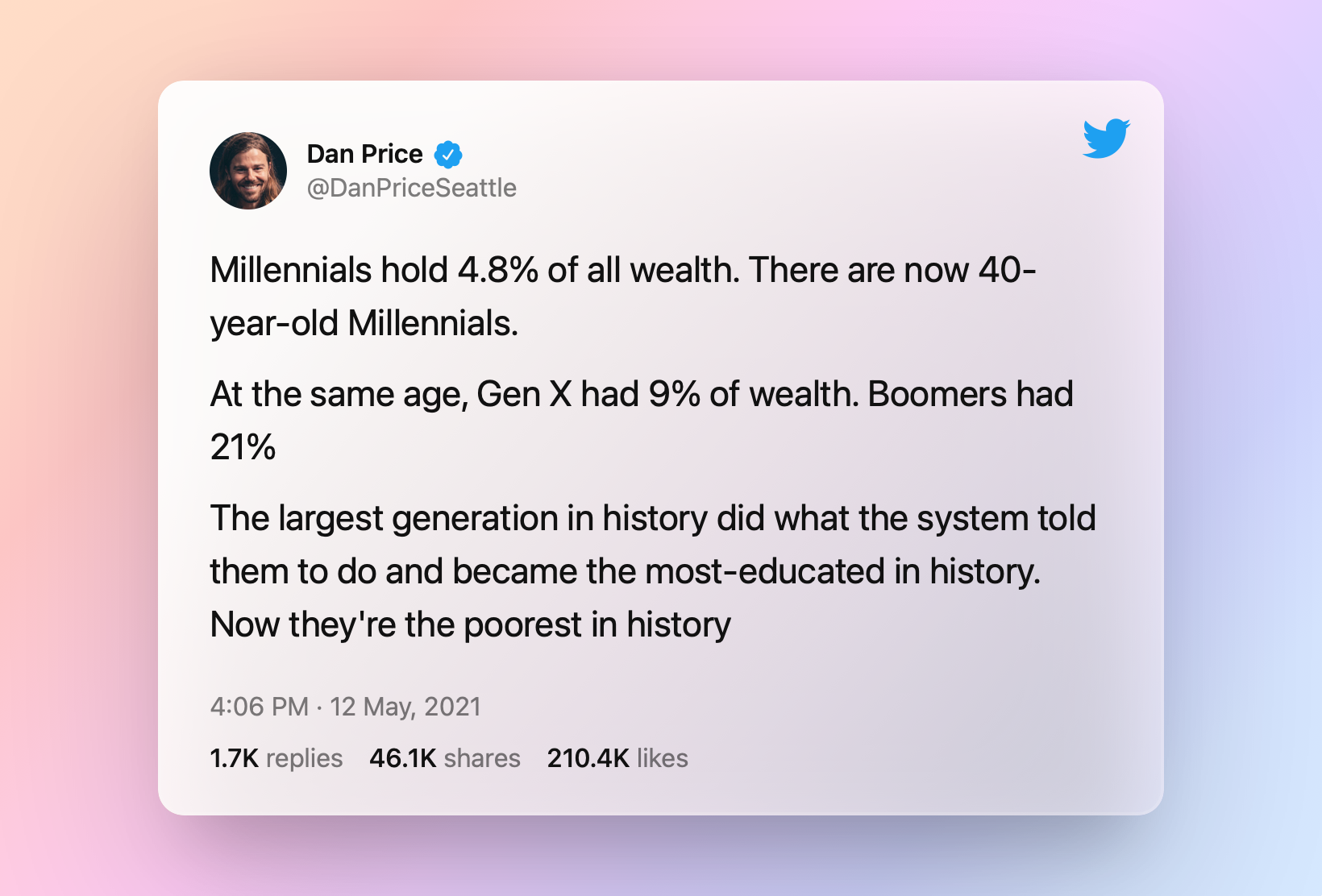
While at work, we see those doing well taking more care of themselves instead of lifting up others:
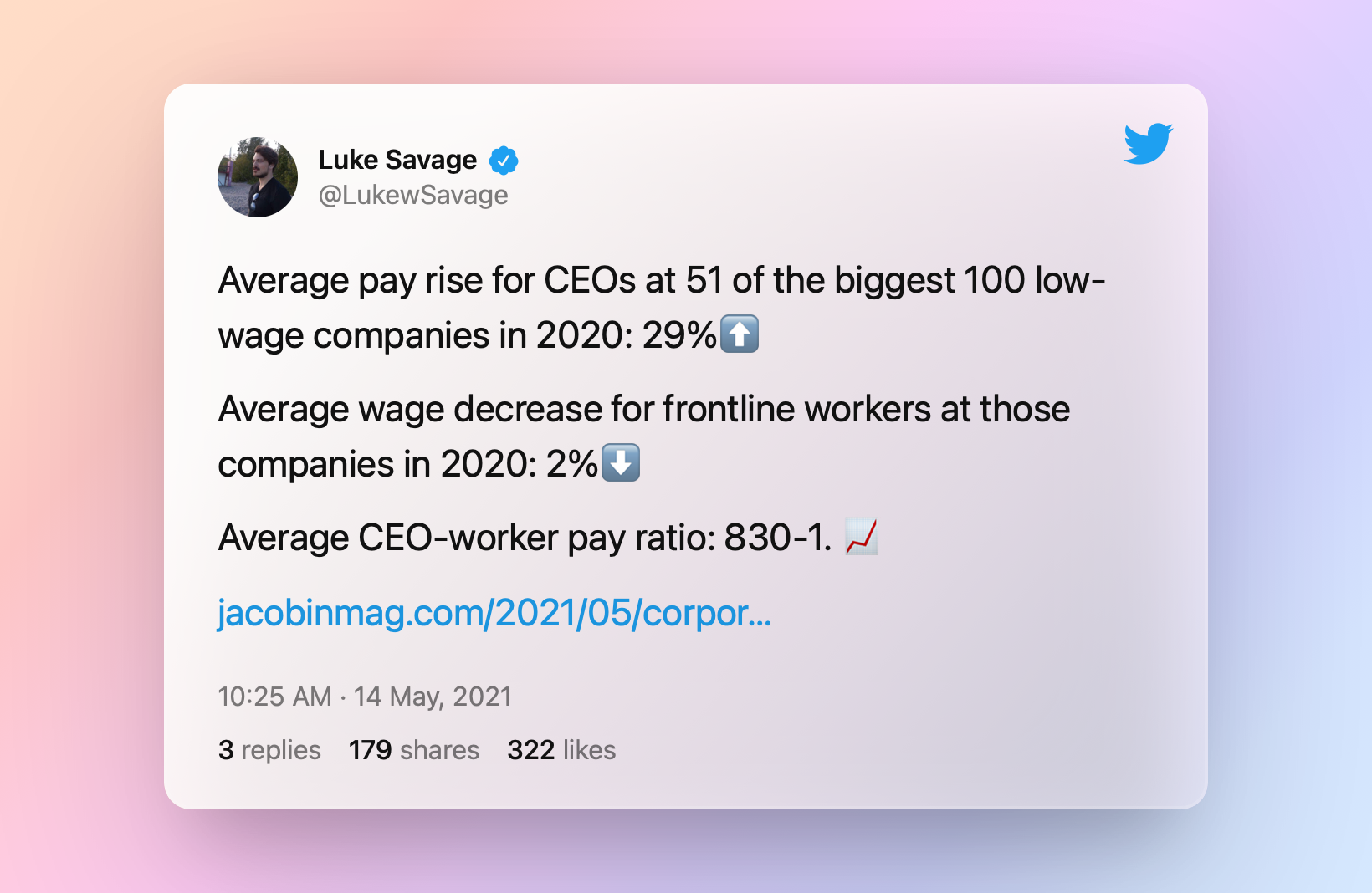
So, we're stressed at home because we're not doing as well financially as prior generations. We're stressed at work because our careers are under constant threat from both technology and corporate culture.
On top of that constant stress, we see those at the top of the organization earning outsized rewards relative to the rest of the company (the rest of the company simply hopes to keep their jobs through one more round of layoffs).
And it feels like everywhere we look, we see more of the same selfishness:
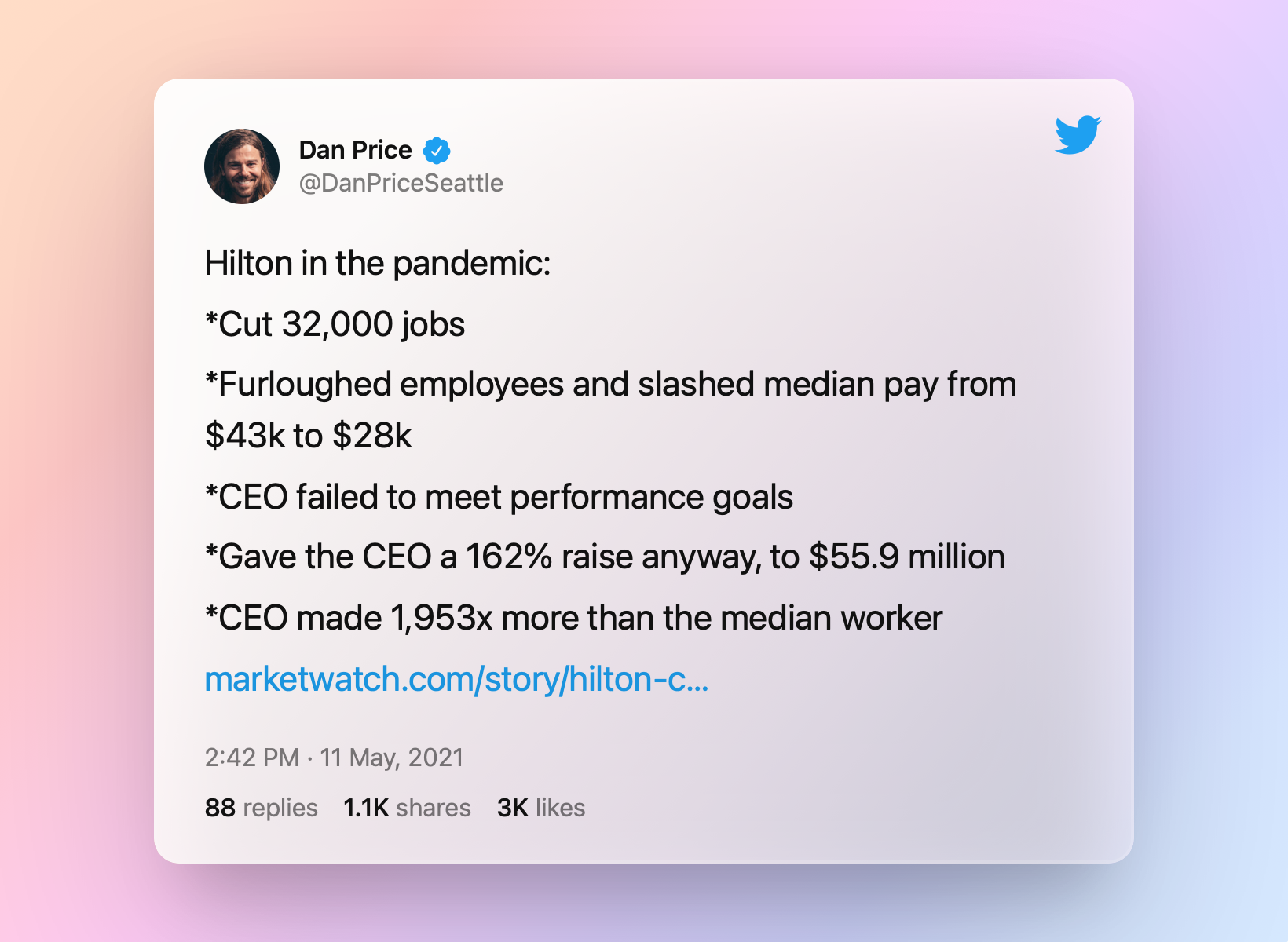
Now that employees have a chance to be selfish – more time with their family vs time in the office or time on the road; or less time commuting to improve quality of life, while actually being able to get more done because there's more time in the day – employees are taking the opportunity to look at what's in it for them.
There's a huge disconnect between employees and employers as seen in these two headlines:

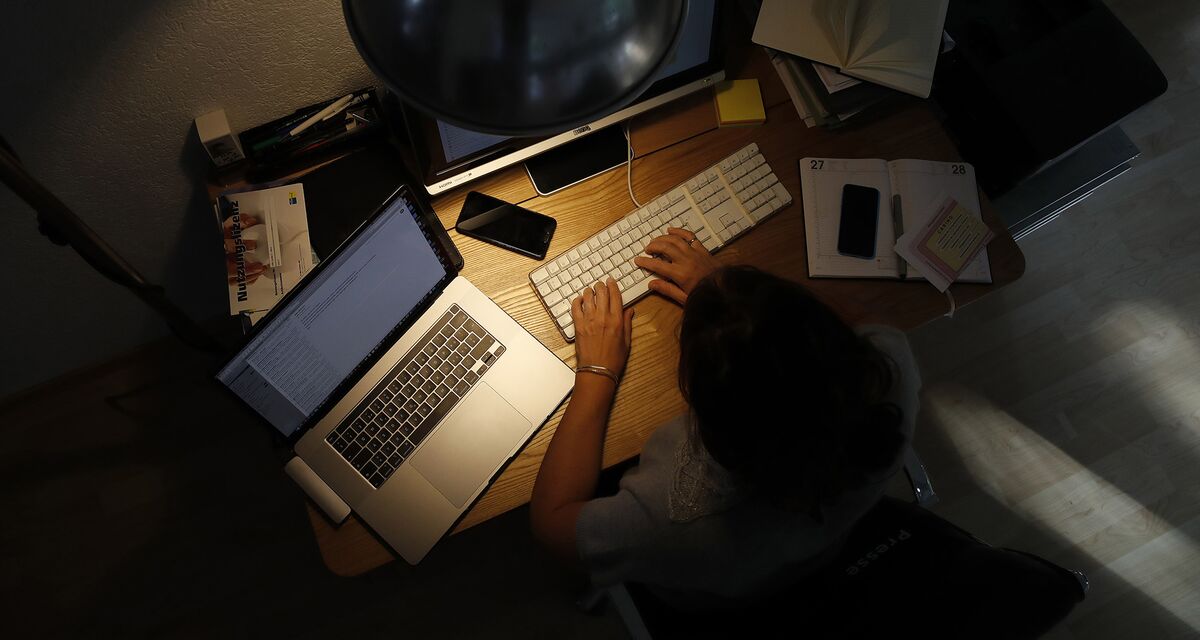
The end result is:
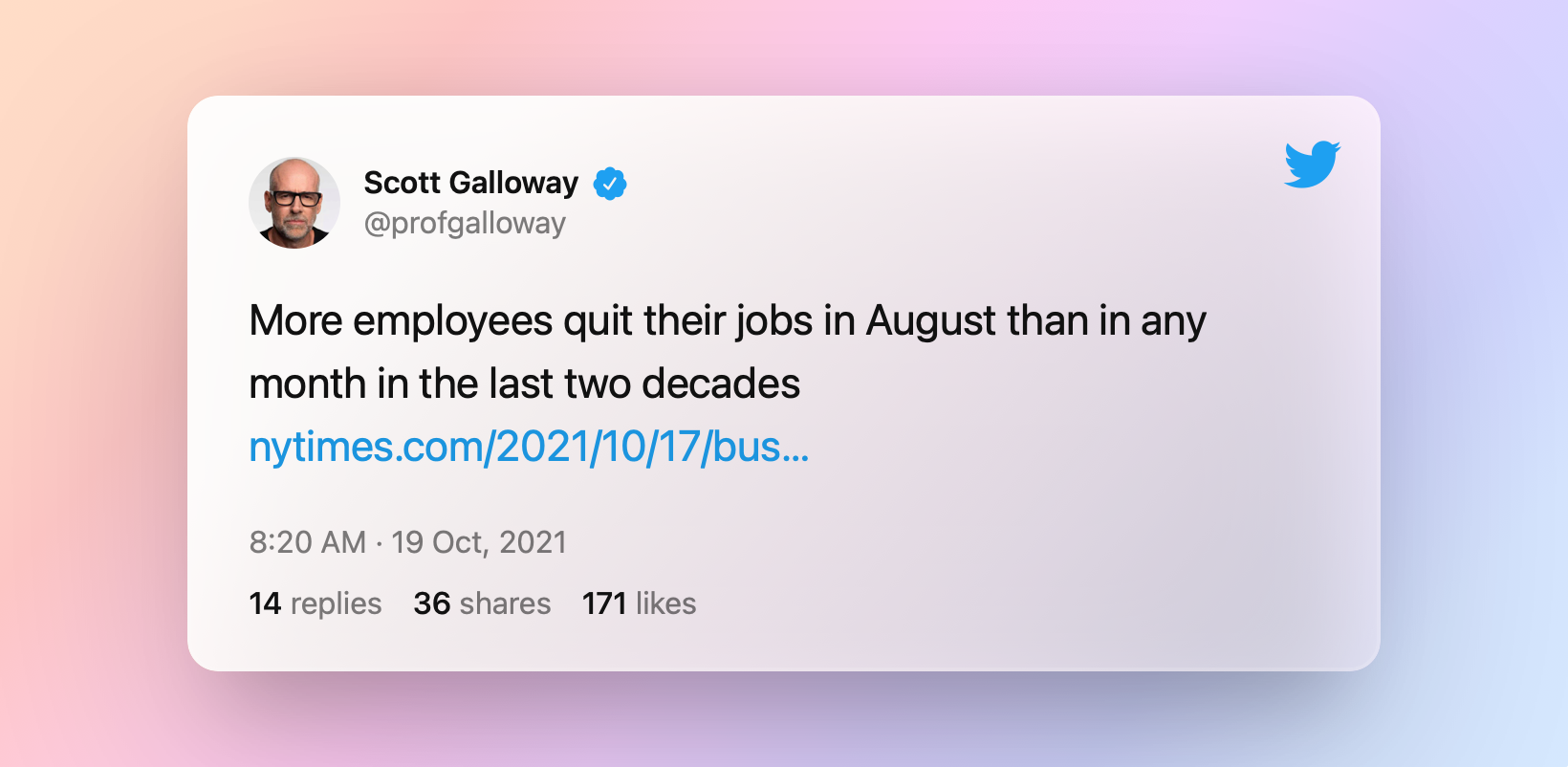
I think it's clear why employees don't want to go back to the office and many are choosing to quit instead.
It's frankly quite shocking how surprised everyone is by this.
I don't believe people don't want to work, at least not broadly. I agree with this sentiment from Sebastian Junger's new book, Freedom:
Humans don't mind hardship, in fact they thrive on it; what they mind is not feeling necessary. Modern society has perfected the art of making people not feel necessary.
By the way, interesting chart today from JPMorgan on "missing employees":
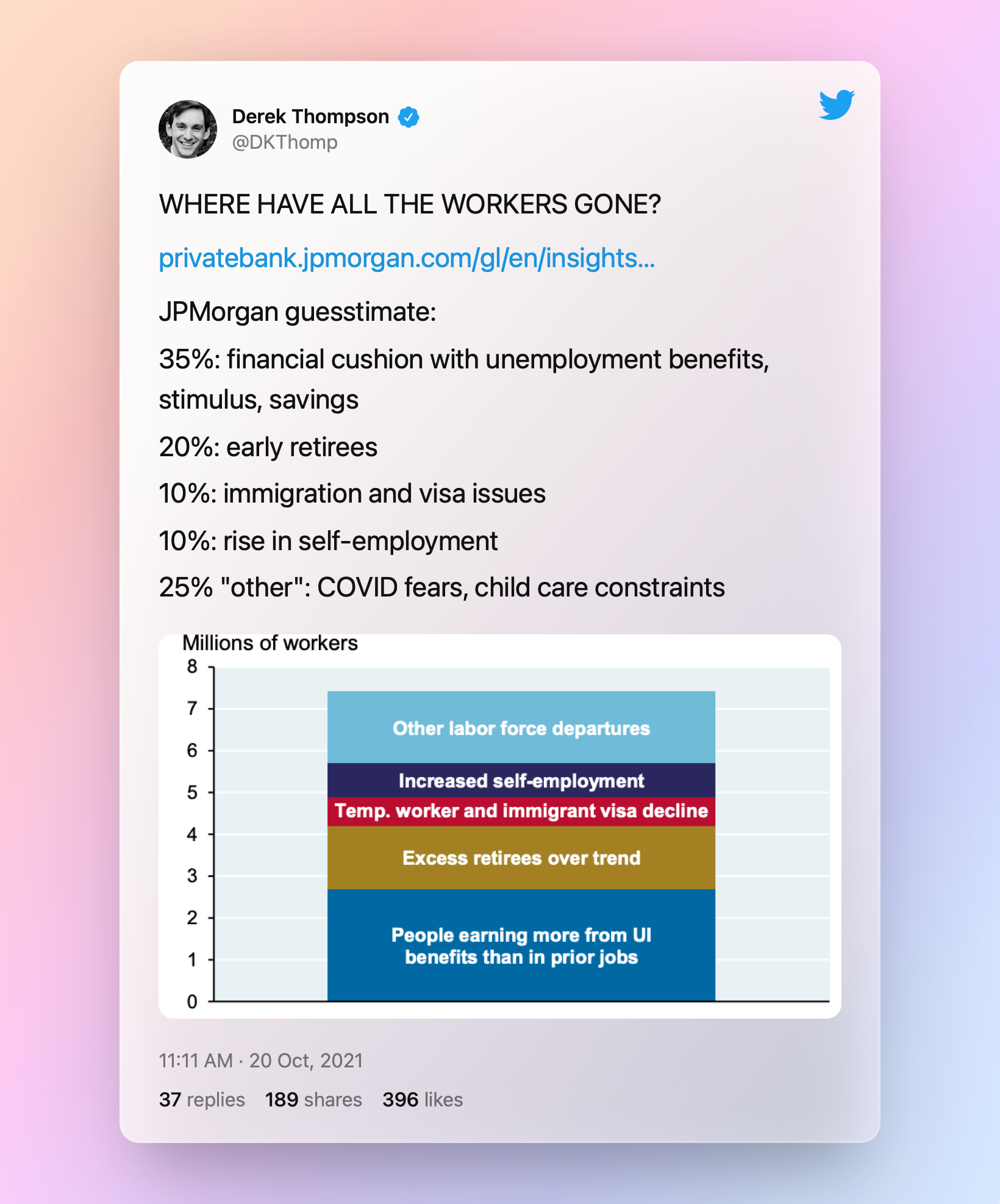
And, another article, this time from Bloomberg, talking about early retirees topping 3 million:
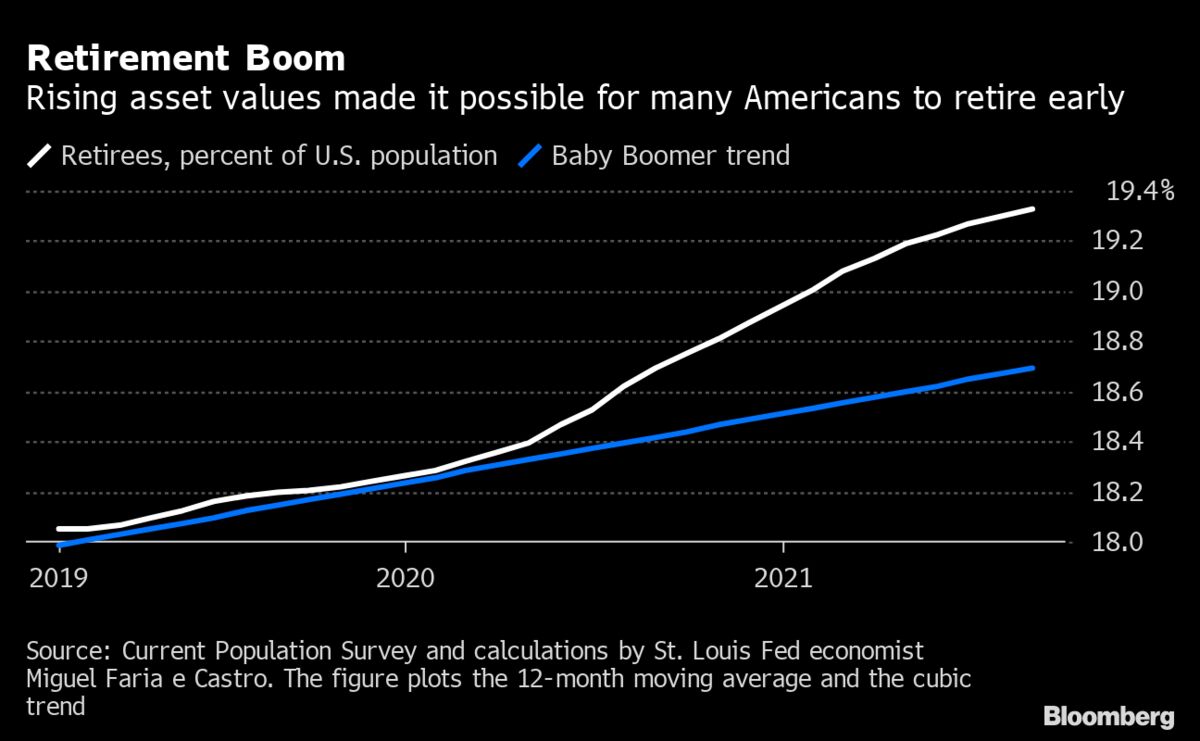
A bit rambling, but I wanted to write something as I haven't written in a while.
Let me leave you with one last thing to think about:
We're expected to answer emails long before and after the workday, we take calls in all timezones, but... to take an hour to go to the doctor, we need permission?




